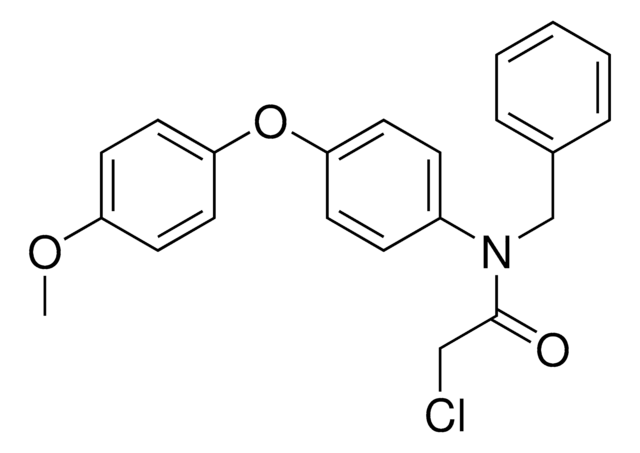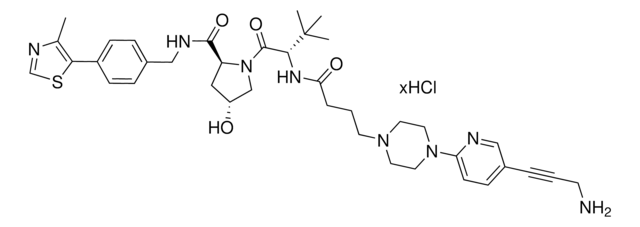920908
(S,R,S)-VL285 Phenol
Synonym(s):
(2S,4R)-4-Hydroxy-N-(2-hydroxy-4-(4-methylthiazol-5-yl)benzyl)-1-((S)-3-methyl-2-(1-oxoisoindolin-2-yl)butanoyl)pyrrolidine-2-carboxamide, VHL E3 ligase ligand for PROTAC® research
About This Item
Recommended Products
ligand
VL285 phenol
Quality Level
form
solid
reaction suitability
reagent type: ligand
functional group
amine
storage temp.
2-8°C
SMILES string
O=C([C@@H]1C[C@@H](O)CN1C([C@H](C(C)C)N2CC(C=CC=C3)=C3C2=O)=O)NCC4=CC=C(C5=C(C)N=CS5)C=C4O
Related Categories
Application
(S,R,S)-VL285 Phenol-linker conjugates are also available for synthesis of degraders. Browse our full offering of degrader building blocks that streamlines the synthesis of degrader libraries.
Other Notes
Portal: Building PROTAC® Degraders for Targeted Protein Degradation
HaloPROTACS: Use of Small Molecule PROTACs to Induce Degradation of HaloTag Fusion Proteins
Systematic exploration of different E3 ubiquitin ligases: an approach towards potent and selective CDK6 degraders
Design, synthesis and biological evaluation of Proteolysis Targeting Chimeras (PROTACs) as a BTK degraders with improved pharmacokinetic properties
Differential PROTAC substrate specificity dictated by orientation of recruited E3 ligase
Legal Information
related product
Storage Class Code
11 - Combustible Solids
WGK
WGK 3
Flash Point(F)
Not applicable
Flash Point(C)
Not applicable
Certificates of Analysis (COA)
Search for Certificates of Analysis (COA) by entering the products Lot/Batch Number. Lot and Batch Numbers can be found on a product’s label following the words ‘Lot’ or ‘Batch’.
Already Own This Product?
Find documentation for the products that you have recently purchased in the Document Library.
Our team of scientists has experience in all areas of research including Life Science, Material Science, Chemical Synthesis, Chromatography, Analytical and many others.
Contact Technical Service








